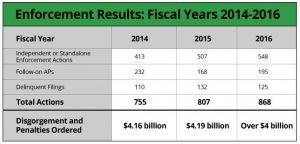 In parallel actions The Securities and Exchange Commission (SEC) announced fraud charges and filed a complaint against Michael Oppenheim (Oppenheim), a financial advisor formerly with J.P. Morgan Securities LLC (JP Morgan), accusing him of stealing at least $20 million from customers to fund his own brokerage accounts and then spending the majority of the money in highly unprofitable options trading. In addition, the United States Attorney for the Southern District of New York and the Assistant Director-in-Charge of the New York Field Office of the Federal Bureau of Investigation (FBI), announced that Oppenheim was charged with wire, securities, and investment adviser fraud, as well as embezzlement.
In parallel actions The Securities and Exchange Commission (SEC) announced fraud charges and filed a complaint against Michael Oppenheim (Oppenheim), a financial advisor formerly with J.P. Morgan Securities LLC (JP Morgan), accusing him of stealing at least $20 million from customers to fund his own brokerage accounts and then spending the majority of the money in highly unprofitable options trading. In addition, the United States Attorney for the Southern District of New York and the Assistant Director-in-Charge of the New York Field Office of the Federal Bureau of Investigation (FBI), announced that Oppenheim was charged with wire, securities, and investment adviser fraud, as well as embezzlement.
The charges stem from allegations that from at least March 2011, to March 2015, Oppenheim abused his relationship of trust with his clients in converting at least $20 million belonging to at least seven clients whose investment advisory accounts at JP Morgan he purported to manage. The allegations state that in some instances, Oppenheim induced clients to consent to the withdrawal of hundreds of thousands, and in some cases millions, of dollars from their accounts at JP Morgan based on false and misleading representations that Oppenheim would invest their money in low-risk municipal bonds to be held in an account at JP Morgan. In other instances, Oppenheim is alleged to have simply withdrew hundreds of thousands of dollars from clients’ accounts without their knowledge.
According to the allegations Oppenheim did not invest client money in low-risk municipal bonds as promised but instead Oppenheim, without the client’s knowledge, used the money to obtain cashier’s checks purporting to be remitted by the clients. Oppenheim then allegedly deposited the cashier’s checks in at least three online brokerage accounts he controlled and used the funds for his own personal use including on-line trading and to pay for personal expenses such as a home loan and bills. Oppenheim allegedly embarked on sizeable trading of stocks and options in his personal accounts for securities including Tesla, Apple, Google, and Netflix. Oppenheim then lost nearly the entire amount of each deposit and his brokerage accounts currently show minimal cash balances.

 Securities Lawyers Blog
Securities Lawyers Blog






